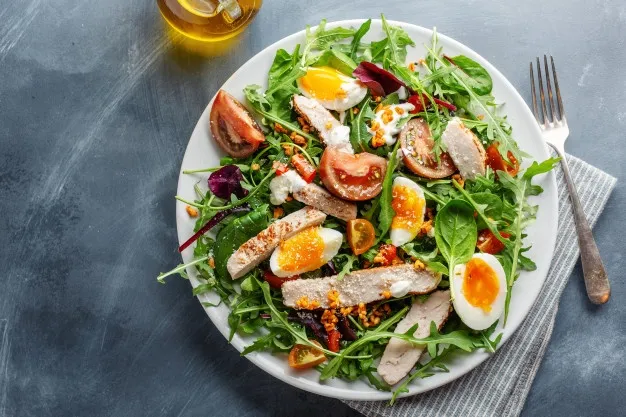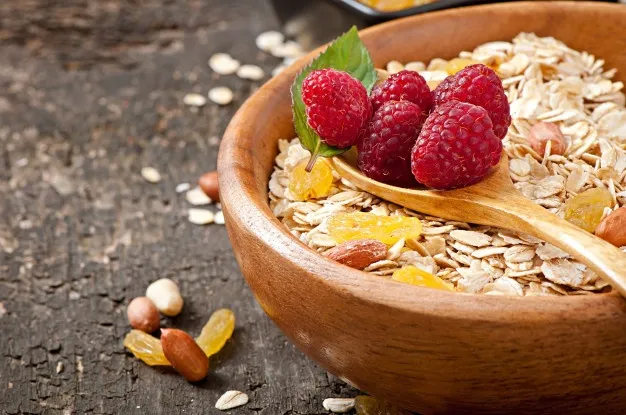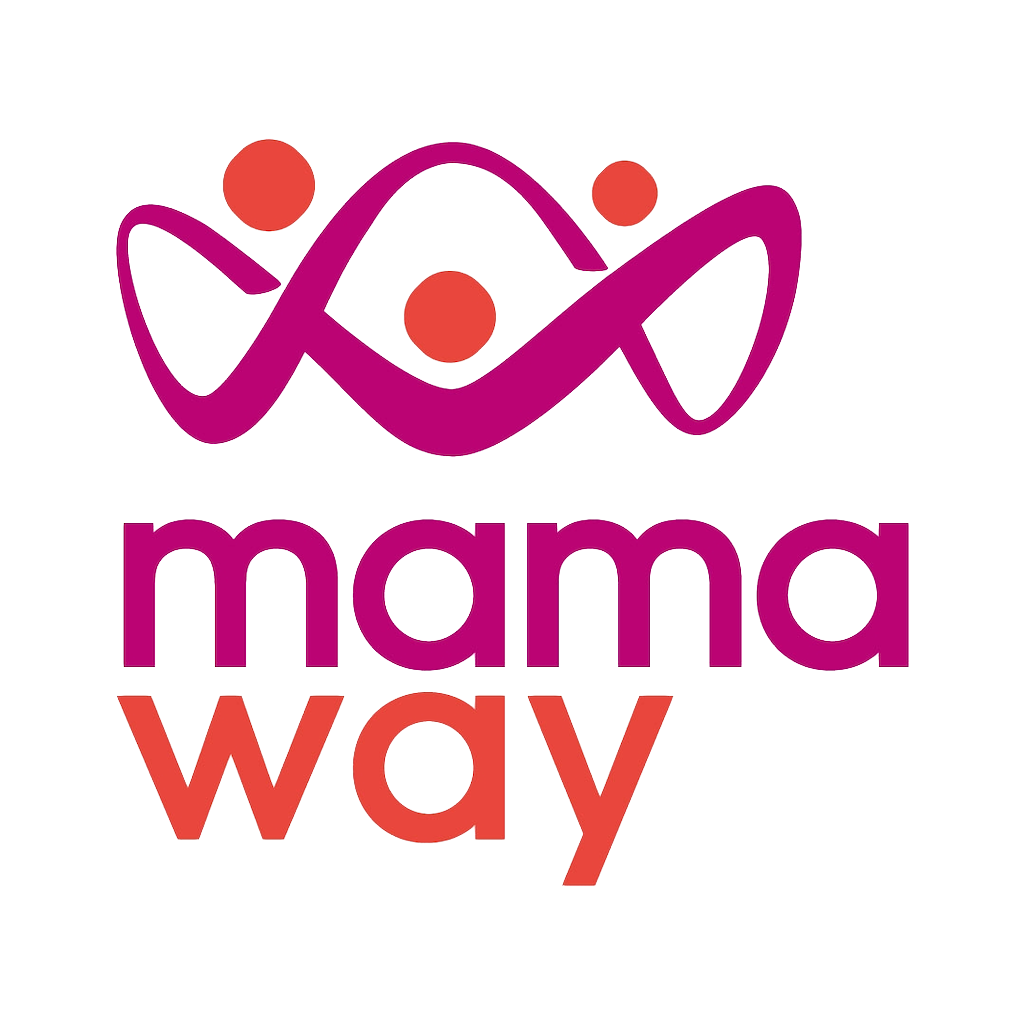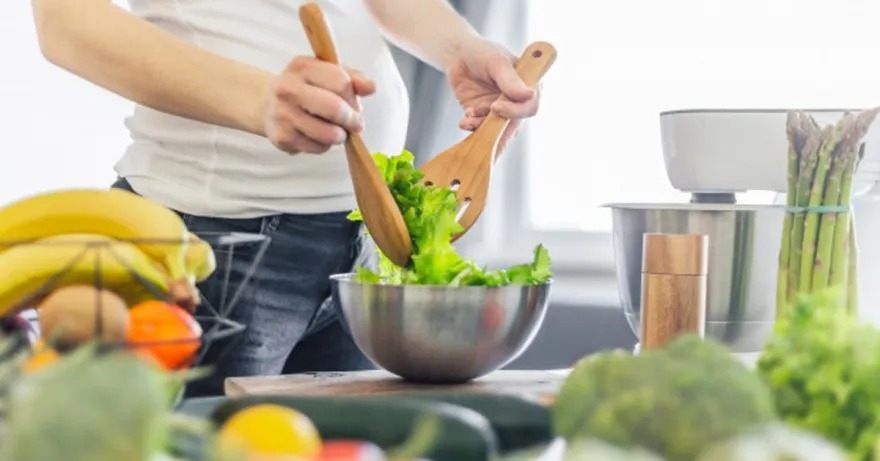You may have heard of superfood and lots of additional vitamins for pregnant mums. A healthy diet is truly essential as what you eat and drink during pregnancy is your baby’s main nutrients. Instead of just taking supplements, we encourage you to take those vitamins from natural food.
To have a healthy and balanced diet, you should know that a pregnant mum normally needs more protein, calcium, folic acid, and iron than women who’re not pregnant. Please note that you do not need to eat for two even if you are pregnant with twins and triplets. If you have gestational diabetes, you are advised to pay more attention to your everyday diet.
Protein

Sources of protein include egg, meat, fish, bean, nut, and the others. 2 portions of fish are suggested for Omega-3 fats to reduce premature birth and low birth weight babies. Omega-3 fats are recommended by doctors to support brain and eye development of the infant during pregnancy and after birth. Avoid fish with high mercury which may impair a baby’s brain, nervous system, vision, and motor skills. Always check the mercury level before eating large and high-mercury fish. What’s more, make sure all meats and fish are cooked to prevent listeriosis.
Calcium
Dairy foods including milk, yogurt, cheese are the most significant source of calcium. Calcium can be found in foods including green vegetables (broccoli and spinach), seafood, dried peas, and beans also. You are encouraged to take 1,000 mg a day of calcium to help babies build bones and muscles.
Avoid unpasteurized cheese which may contain Listeria. Listeria can cross over into the placenta and lead to infections or blood poisoning in unborn babies. Besides, eating plenty of green leafy vegetables, you can gain more calcium and improve your digestion and prevent constipation.
Folic Acid
Folate which is called folic acid in the supplement is an essential vitamin you should take 400mcg per day before pregnancy and during pregnancy as suggested by the Centers for Disease Control and Prevention (CDC). Folic acid is a B vitamin that can help form the neural tube and prevent most birth defects, including neural tube defects. You can find folate in a variety of food, including eggs, legumes, leafy greens, nuts, avocado, asparagus, and the others.
Iron

Iron plays a role in carrying enough oxygen to you and your baby. You need 27 milligrams of iron per day, which is double the amount than women who are not expecting, according to ACOG. Oats, lean meat are rich in iron, which helps to develop the baby’s red blood cell supply and build a baby’s brain development. What’s more, getting enough iron can prevent you from anemia which may lead to fatigue and increase the risk of infection during pregnancy.
Last but not least, eating a healthy diet doesn’t mean that you need to give up the food you love before. You can start taking a variety of food to make sure you consume all nutrients for your baby. Please take note of your weight gain during pregnancy also to ensure a healthy baby.
TOP 11 Pregnancy Super Food
1. OATMEAL:
Oatmeal can be a nutritious food to include in a healthy pregnancy diet. Here are some benefits of eating oatmeal during pregnancy:
- Rich in nutrients: Oatmeal is a good source of important nutrients such as fiber, protein, iron, and B vitamins.
- Helps with digestion: The fiber in oatmeal can help prevent constipation, a common problem during pregnancy.
- May reduce risk of gestational diabetes: Oatmeal has a low glycemic index, which means it can help regulate blood sugar levels and reduce the risk of gestational diabetes.
- Can aid in weight management: Oatmeal can help you feel full and satisfied, which can make it easier to manage your weight during pregnancy.
- Versatile and easy to prepare: Oatmeal can be cooked in a variety of ways and can be topped with a variety of healthy ingredients, making it a convenient and easy-to-prepare meal.
When consuming oatmeal during pregnancy, it’s important to choose plain, unsweetened varieties to avoid added sugars. Adding healthy toppings such as fresh fruit, nuts, and seeds can enhance the flavor and nutrient content of oatmeal. As with any dietary change during pregnancy, it’s always important to check with your healthcare provider to ensure that it is appropriate for your individual needs.
2. AVOCADO:
Avocados can be a healthy addition to a balanced pregnancy diet. Here are some benefits of eating avocado during pregnancy:
- Rich in nutrients: Avocado is a good source of healthy fats, fiber, vitamins C, E, K, and B6, folate, and potassium.
- May help with fetal development: Folate, which is found in avocado, is an important nutrient for fetal development and can help prevent birth defects.
- Can aid in digestion: The fiber in avocado can help prevent constipation, a common problem during pregnancy.
- Can help manage blood pressure: The potassium in avocado can help regulate blood pressure, which can be beneficial for pregnant women who are at risk for high blood pressure.
- Versatile and easy to incorporate: Avocado can be used in a variety of ways, such as in smoothies, salads, sandwiches, and as a healthy fat source for cooking.
When consuming avocado during pregnancy, it’s important to be mindful of portion sizes, as avocados are high in calories. As with any dietary change during pregnancy, it’s always important to check with your healthcare provider to ensure that it is appropriate for your individual needs.
3. LEGUMES:
Legumes, which include beans, lentils, chickpeas, and peas, can be a healthy and nutritious addition to a balanced pregnancy diet. Here are some benefits of eating legumes during pregnancy:
- Rich in nutrients: Legumes are an excellent source of plant-based protein, fiber, iron, folate, and other important vitamins and minerals.
- Can help with digestion: The fiber in legumes can help prevent constipation, a common problem during pregnancy.
- May reduce the risk of gestational diabetes: Legumes have a low glycemic index, which means they can help regulate blood sugar levels and reduce the risk of gestational diabetes.
- Can help manage weight gain: Legumes are low in fat and high in fiber and protein, which can help you feel full and satisfied, making it easier to manage weight gain during pregnancy.
- Versatile and easy to prepare: Legumes can be used in a variety of ways, such as in soups, stews, salads, and as a vegetarian protein source in place of meat.
When consuming legumes during pregnancy, it’s important to rinse them well and cook them thoroughly to reduce the risk of foodborne illness. As with any dietary change during pregnancy, it’s always important to check with your healthcare provider to ensure that it is appropriate for your individual needs.
4. VEGETABLES:
Vegetables are an important part of a healthy and balanced pregnancy diet. Here are some benefits of eating vegetables during pregnancy:
- Rich in nutrients: Vegetables are a good source of important nutrients such as fiber, vitamins, minerals, and antioxidants that support the health and development of the baby.
- Can help with digestion: The fiber in vegetables can help prevent constipation, a common problem during pregnancy.
May reduce the risk of gestational diabetes: Eating a diet rich in vegetables may help regulate blood sugar levels and reduce the risk of gestational diabetes. - Can aid in weight management: Vegetables are low in calories and high in fiber, which can help you feel full and satisfied, making it easier to manage weight gain during pregnancy.
- Versatile and easy to incorporate: Vegetables can be used in a variety of ways, such as in salads, soups, stir-fries, and as a healthy side dish to meals.
Some great vegetables to include in a pregnancy diet include leafy greens like spinach and kale, cruciferous vegetables like broccoli and cauliflower, root vegetables like sweet potatoes and carrots, and colorful vegetables like bell peppers and tomatoes. When consuming vegetables during pregnancy, it’s important to wash them thoroughly to reduce the risk of foodborne illness. As with any dietary change during pregnancy, it’s always important to check with your healthcare provider to ensure that it is appropriate for your individual needs.
5. LEAN MEAT:
Lean meats, such as chicken, turkey, and lean beef, can be a healthy and nutritious source of protein for pregnant women. Here are some benefits of eating lean meats during pregnancy:
- Rich in nutrients: Lean meats are an excellent source of protein, iron, zinc, and vitamin B12, all of which are important for the healthy growth and development of the baby.
- Can help manage weight gain: Lean meats are low in fat and high in protein, which can help you feel full and satisfied, making it easier to manage weight gain during pregnancy.
- May reduce the risk of gestational diabetes: Eating a diet rich in lean protein sources like chicken and turkey may help regulate blood sugar levels and reduce the risk of gestational diabetes.
- Versatile and easy to prepare: Lean meats can be used in a variety of ways, such as in stir-fries, soups, stews, and grilled or roasted as a main dish.
When consuming lean meats during pregnancy, it’s important to cook them thoroughly to reduce the risk of foodborne illness. Pregnant women should also be mindful of their portion sizes, as eating too much meat can lead to excessive protein intake, which can put a strain on the kidneys. As with any dietary change during pregnancy, it’s always important to check with your healthcare provider to ensure that it is appropriate for your individual needs.
6. SALMON:
Salmon is a nutritious fish that can be a healthy addition to a balanced pregnancy diet. Here are some benefits of eating salmon during pregnancy:
- Rich in omega-3 fatty acids: Salmon is high in omega-3 fatty acids, which are important for the development of the baby’s brain and eyes.
- Can help reduce inflammation: Omega-3 fatty acids may help reduce inflammation in the body, which can be helpful during pregnancy when inflammation levels tend to rise.
- Can help regulate blood pressure: Salmon is a good source of potassium, which can help regulate blood pressure during pregnancy.
- Low in mercury: Salmon is a low-mercury fish, which means it can be a safer seafood choice for pregnant women compared to high-mercury fish like sharks and swordfish.
- Versatile and easy to prepare: Salmon can be grilled, baked, or broiled and can be paired with a variety of flavors and seasonings.
It’s important to choose wild-caught salmon rather than farmed salmon, as farmed salmon may contain higher levels of contaminants. Pregnant women should also be mindful of their portion sizes, as excessive consumption of fish can lead to an accumulation of mercury in the body. The FDA recommends that pregnant women consume no more than 8-12 ounces of low-mercury fish per week. As with any dietary change during pregnancy, it’s always important to check with your healthcare provider to ensure that it is appropriate for your individual needs.
7. WHOLE-GRAIN BREAD:
Whole-grain bread can be a healthy and nutritious choice for pregnant women. Here are some benefits of eating whole-grain bread during pregnancy:
- Rich in fiber: Whole-grain bread is high in fiber, which can help prevent constipation, a common problem during pregnancy.
- Contains important nutrients: Whole-grain bread is a good source of important nutrients such as B vitamins, iron, and magnesium, which are important for the healthy development of the baby.
- Can help regulate blood sugar: Whole-grain bread has a lower glycemic index compared to white bread, which means it can help regulate blood sugar levels and reduce the risk of gestational diabetes.
- Can aid in weight management: Whole-grain bread is more filling than white bread, which can help you feel full and satisfied, making it easier to manage weight gain during pregnancy.
- Versatile and easy to incorporate: Whole-grain bread can be used in a variety of ways, such as in sandwiches, as a side to soups or stews, or toasted with toppings like avocado or nut butter.
When choosing whole-grain bread during pregnancy, it’s important to read the label and look for bread that is made with 100% whole grains, as some bread may be made with a blend of whole and refined grains. Pregnant women should also be mindful of their portion sizes, as excessive consumption of bread can lead to excessive carbohydrate intake. As with any dietary change during pregnancy, it’s always important to check with your healthcare provider to ensure that it is appropriate for your individual needs.
8. FRUITS and BERRIES:
Fruits and berries can be a healthy and nutritious addition to a balanced pregnancy diet. Here are some benefits of eating fruits and berries during pregnancy:
- Rich in vitamins and minerals: Fruits and berries are a great source of vitamins, minerals, and antioxidants that are important for the healthy development of the baby.
- High in fiber: Fruits and berries are high in fiber, which can help prevent constipation, a common problem during pregnancy.
- Can help regulate blood sugar: Fruits and berries have a lower glycemic index compared to refined sugars, which means they can help regulate blood sugar levels and reduce the risk of gestational diabetes.
- Can aid in weight management: Fruits and berries are low in calories and can be a healthy snack option that can help manage weight gain during pregnancy.
- Versatile and easy to incorporate: Fruits and berries can be used in a variety of ways, such as in smoothies, as a snack, or as a topping for yogurt or oatmeal.
Some examples of fruits and berries that are particularly nutritious for pregnant women include:
- Citrus fruits, such as oranges and grapefruits, which are high in vitamin C.
- Berries, such as blueberries, strawberries, and raspberries, which are high in antioxidants and fiber.
- Bananas, which are high in potassium and vitamin B6.
- Apples, which are high in fiber and vitamin C.
When consuming fruits and berries during pregnancy, it’s important to wash them thoroughly to reduce the risk of foodborne illness. Pregnant women should also be mindful of their portion sizes, as excessive consumption of fruit can lead to excessive sugar intake. As with any dietary change during pregnancy, it’s always important to check with your healthcare provider to ensure that it is appropriate for your individual needs.
9. NUTS:
Nuts can be a healthy and nutritious addition to a balanced pregnancy diet. Here are some benefits of eating nuts during pregnancy:
- Rich in nutrients: Nuts are a good source of important nutrients such as protein, healthy fats, fiber, vitamins, and minerals, which are important for the healthy development of the baby.
- Can help regulate blood sugar: Nuts have a low glycemic index, which means they can help regulate blood sugar levels and reduce the risk of gestational diabetes.
- Can aid in weight management: Nuts are filling and can be a healthy snack option that can help manage weight gain during pregnancy.
- Can help reduce the risk of allergies: Recent studies have shown that eating nuts during pregnancy may help reduce the risk of allergies in children.
- Versatile and easy to incorporate: Nuts can be used in a variety of ways, such as in trail mix, as a snack, or as a topping for yogurt or oatmeal.
Some examples of nuts that are particularly nutritious for pregnant women include:
- Almonds, which are high in vitamin E, magnesium, and protein.
- Walnuts, which are high in omega-3 fatty acids and antioxidants.
- Pistachios, which are high in potassium and fiber.
- Cashews, which are high in iron and zinc.
When consuming nuts during pregnancy, it’s important to be mindful of portion sizes, as excessive consumption of nuts can lead to excessive calorie intake. Raw or roasted nuts are the healthiest options, while salted or sweetened nuts should be consumed in moderation. As with any dietary change during pregnancy, it’s always important to check with your healthcare provider to ensure that it is appropriate for your individual needs.
10. BROCCOLI and DARK LEAFY GREENS:
Broccoli and dark leafy greens, such as spinach and kale, can be a healthy and nutritious addition to a balanced pregnancy diet. Here are some benefits of eating broccoli and dark leafy greens during pregnancy:
- Rich in nutrients: Broccoli and dark leafy greens are a good sources of important nutrients such as vitamins A, C, and K, folate, calcium, and iron, which are important for the healthy development of the baby.
- High in fiber: Broccoli and dark leafy greens are high in fiber, which can help prevent constipation, a common problem during pregnancy.
Can aid in weight management: Broccoli and dark leafy greens are low in calories and can be a healthy option that can help manage weight gain during pregnancy. - Can help prevent anemia: Broccoli and dark leafy greens are high in iron, which can help prevent anemia during pregnancy.
- Versatile and easy to incorporate: Broccoli and dark leafy greens can be used in a variety of ways, such as in salads, stir-fries, or as a side dish.
When consuming broccoli and dark leafy greens during pregnancy, it’s important to wash them thoroughly to reduce the risk of foodborne illness. Pregnant women should also be mindful of their portion sizes, as excessive consumption of certain greens, such as spinach, may increase the risk of kidney stones due to the high oxalate content. As with any dietary change during pregnancy, it’s always important to check with your healthcare provider to ensure that it is appropriate for your individual needs.
11. DAIRY PRODUCT:
Dairy products can be a healthy and nutritious addition to a balanced pregnancy diet. Here are some benefits of consuming dairy products during pregnancy:
- Rich in calcium: Dairy products are a good source of calcium, which is important for the development of strong bones and teeth for both the mother and the baby.
- Good source of protein: Dairy products are also a good source of protein, which is important for the growth and development of the baby.
- Good source of vitamin D: Many dairy products, such as milk and yogurt, are fortified with vitamin D, which helps the body absorb calcium and is important for the development of strong bones and teeth.
- Can help prevent pre-eclampsia: Studies have shown that consuming adequate amounts of calcium during pregnancy may help reduce the risk of developing pre-eclampsia, a serious pregnancy complication.
- Versatile and easy to incorporate: Dairy products can be used in a variety of ways, such as in smoothies, as a snack, or as a source of calcium in recipes.
Examples of dairy products that are particularly nutritious for pregnant women include:
- Milk, which is a good source of calcium, protein, and vitamin D.
- Yogurt, which is a good source of calcium, protein, and probiotics, which can help promote healthy digestion.
- Cheese, which is a good source of calcium and protein. However, it’s important to choose low-fat or reduced-fat options to avoid excessive calorie and saturated fat intake.
When consuming dairy products during pregnancy, it’s important to choose low-fat or reduced-fat options to avoid excessive calorie and saturated fat intake. It’s also important to be mindful of portion sizes, as excessive consumption of dairy products can lead to excessive calorie and calcium intake. As with any dietary change during pregnancy, it’s always important to check with your healthcare provider to ensure that it is appropriate for your individual needs.


Leave a Reply